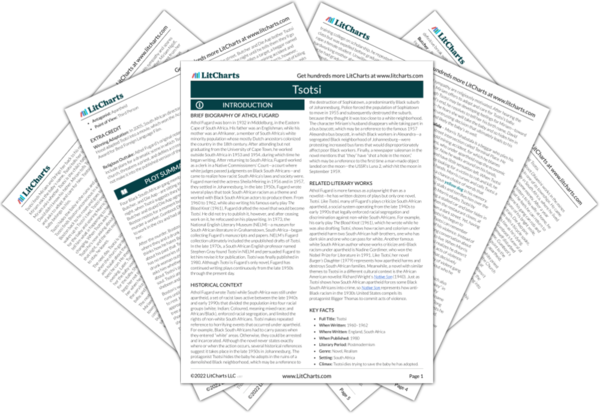This passage suggests, without stating explicitly, that Butcher and Die Aap take Rosie outside to rape her. Later, her screams are further evidence that she’s being violently assaulted. Once again, Boston expresses sympathy for a victim of the gang—in this case, Rosie—without, however, doing anything to help the victim, which suggests that he lacks the courage or believes he lacks the power to intervene. Tsotsi, meanwhile, clings to his habits, acting “outwardly the same, as always,” because he is psychologically dependent on his routines and afraid that Boston’s sympathies and questions will somehow disrupt his life.


